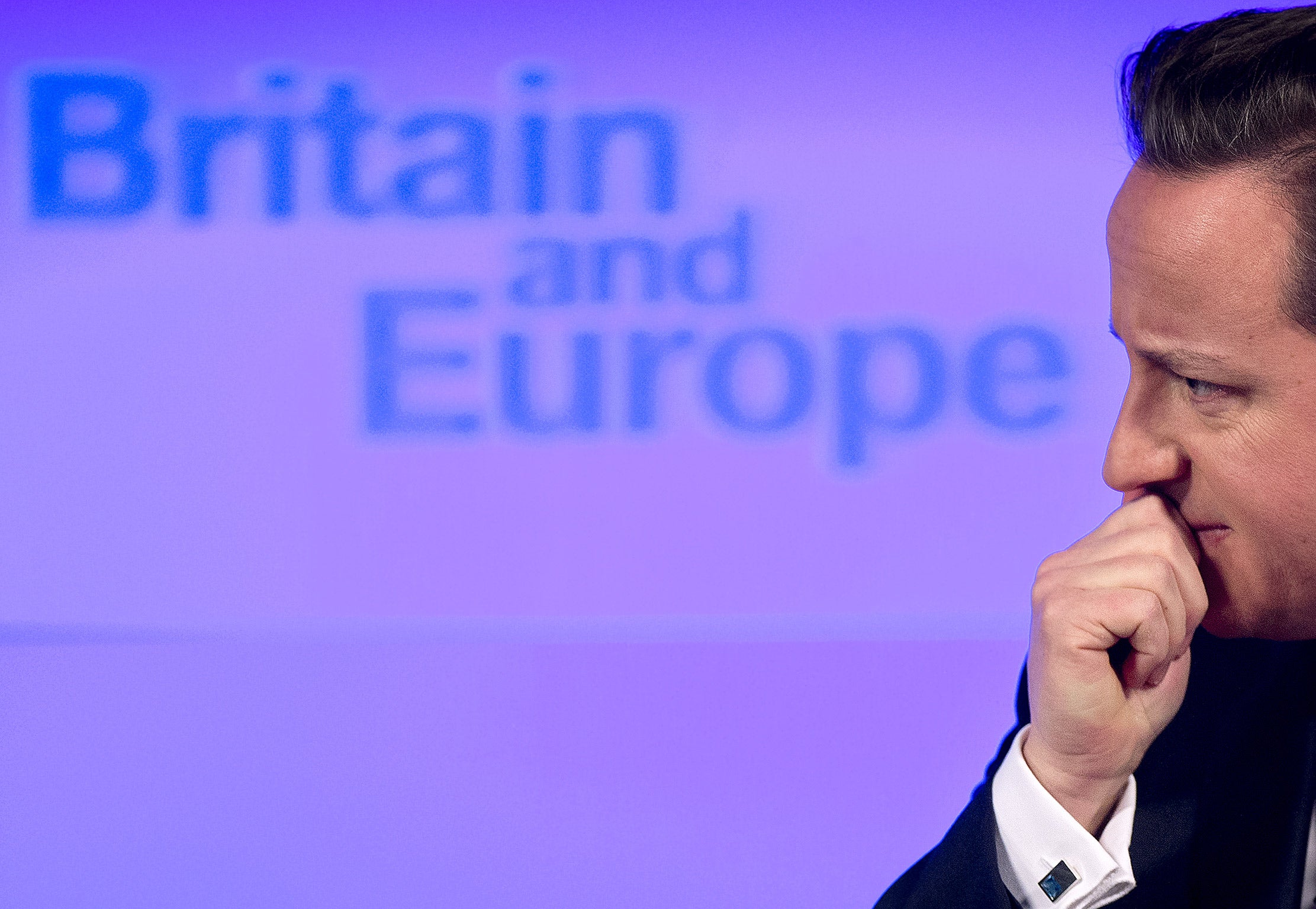Five reasons why Britain could be sleepwalking to an EU exit as early as next year
Several factors are pointing to an early referendum but will it be enough time to secure sufficient reforms and convince voters to stay in the EU?

David Cameron pledged in the Conservative party manifesto to hold a referendum on Britain's membership of the European Union “by the end of 2017”.
The language was deliberately loose to give the party flexibility – the most obvious reason was to allow it to negotiate deals with the Liberal Democrats or Ukip in the event of a hung Parliament but the other motives are now becoming clear since a majority Conservative government has made an EU referendum a certainty.
There are several motives for holding the referendum long before the end of 2017, with some insiders even suggesting it could be held as early as next year.
But would an early a referendum on the EU held next year winnable for the ‘in’ camp? Here are five reasons why the vote could be held in 2016 and why the ‘in’ camp should we worried.
1. Get it over and done with
With business leaders warning of two years of uncertainty as financial decisions are put on hold until after they discover the fate of Britain’s relationship with the EU, David Cameron and George Osborne may go for an early referendum in order to avoid harming their treasured economic recovery.
“The mood now is definitely to accelerate the process and give us the option of holding the referendum in 2016,” one insider told the Guardian. “We had always said that 2017 was a deadline rather than a fixed date.”
But an early referendum reduces the chances of Mr Cameron securing the more ambitious renegotiation he wants: EU-wide treaty change.
This will in turn reduce the chance of the British public voting in favour of a watered down 'renegotiated' settlement the Prime Minister manages to achieve because although polls point to Brits opting to stay in the EU, they also show strong opposition to the status quo in Europe. The thought of 'business as usual' in Europe will certainly not endear itself to a British electorate.
Failure to negotiate any meaningful reforms will only fuel the argument of anti-EU campaigners and anger the powerful euro-sceptic press in the UK.
2. German and French elections in 2017
European officials are worried a British referendum on the EU in 2017 would clash with the French presidential elections and the German federal elections taking place in the same year.

European officials were reluctant to enter any meaningful discussions on renegotiation before last week's UK election but after such a decisive outcome in favour of the pro-referendum Tories, government insiders expect European leaders to press ahead with the negotiations with the view to establishing an outcome well before the French elections in early 2017 and the German elections in September.
If negotiations are completed long before the French elections in the spring of 2017, there will be little point in Britain pro-longing the uncertainty and logic would point to holding a referendum at the end of 2016. This way the outcome would be settled before the elections across the channel and avoid the danger of affecting them.
3. Opposition to David Cameron's demands for treaty change
Mr Cameron has made it clear he wants any reforms he secures to be written into the EU treaty before he puts his renegotiation package to the British people.
This condition was absent from the Conservative party manifesto but again, this was to allow for flexibility and Downing Street has made it clear that the Prime Minister "wants treaty change".
However Wolfgang Schaube, the German finance minister, has dealt a blow to this key demand by saying a treaty change would be unlikely to happen soon.
He said: “The German government wants treaty change one day. We don’t think it will happen tomorrow. All we need to do to strengthen the economic and monetary union can be done without treaty change.”
If Mr Cameron fails to secure such a key demand in his renegotiation bid, it will undermine voters' trust in his or any other Prime Minister's ability to extract any meaningful change to an institution that the British public has very little confidence with in its current form.
Senior Euro-sceptic MPs have already indicated they are prepared to campaign to leave the 28-nation bloc in the 2017 referendum if he secures only cosmetic changes.
4. The referendum will be enshrined in law this year
Mr Cameron will include plans to legislate for an EU referendum in his Queen's Speech on 27 May.
With a Conservative majority in the House of Commons set to approve the bill when it is presented to MPs shortly afterwards, the Prime Minister will be given the power to call the referendum as and when he sees fit - paving the way for the first national vote on Britain's relationship with Europe in more than 40 years.
5. PM has re-appointed same Europe minister
Mr Cameron's decision to re-appoint David Liddington as Europe minister shows he is keen to continue the same approach to renegotiation - he opted against appointing a fresh face that would have signalled a return to square one.
Mr Liddington can resume the partnerships he has built up since being appointed to the post in 2010 and becomes the longest serving Europe minister in the process.
Join our commenting forum
Join thought-provoking conversations, follow other Independent readers and see their replies
0Comments